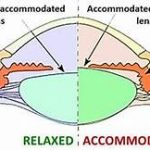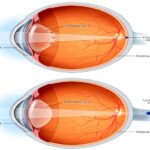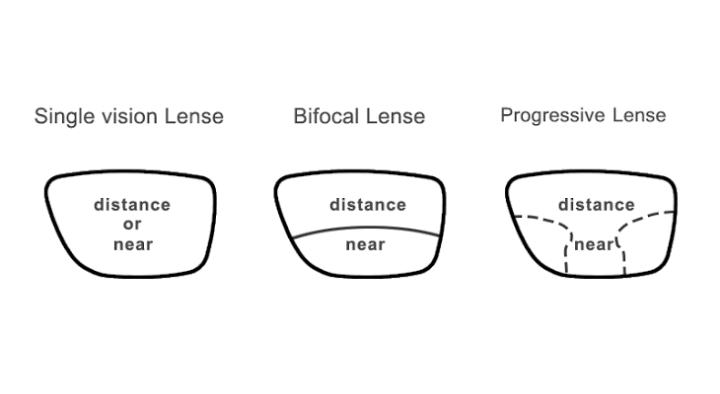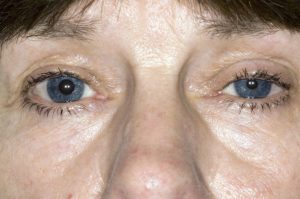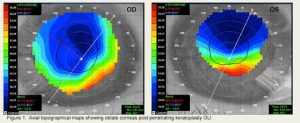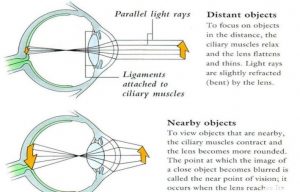
The term insufficiency of accommodation is used, when the accommodative power is significantly less than the normal physiological limits for the patient’s age. Therefore, it should not be confused with presbyopia in which the physiological insufficiency of accommodation is normal for the patient’s age.Accommodative insufficiency is a sensory motor anomaly of the visual system that is characterized by an inability to focus or sustain focus at near, demonstrated clinically by an insufficient amplitude of accommodation based on age-expected norms.
The American Optometric Association defines accommodative insufficiency as occurring when the amplitude of accommodation is lower than expected for the patient’s age and is not due to sclerosis of the crystalline lens. Symptoms begin almost simultaneously with an increase in near work demand.
Typically, there are a few different causes of accommodative insufficiency. Children who have had poor health overall and suffered from illnesses such as a severe flu bug, glandular fever, or chronic fatigue can develop weak focus. It can also be a side effect of some medications or visual stress. Children who are not able to develop good focusing stamina are prone to accommodative insufficiency.
PURPOSE: The aim of the study was to compare efficacy of plus lens(+1.00D) reading addition (PLRA) with that of spherical flipper (+/-1.50D) in the treatment of accommodative insufficiency (AI).
CAUSES:
1.Premature sclerosis of lens.
- Weakness of ciliary muscle due to systemic causes of muscle due to systemic causes of muscles fatigue such as debilitating illness, anaemia, toxaemia, malnutrition, diabetes mellitus, pregnancy stress and so on.
- Weakness of ciliary muscle associated with primary open angle glaucoma.
SIGNS:
Direct measures of accommodative stimulation:
- Reduced amplitude of accommodation
- Difficulty clearing -2.00 with monocular accommodative facility
- High monocular estimation method finding
- High fused crossed-cylinder finding
Indirect measures of accommodative stimulation:
- Reduced positive relative accommodation
- Difficulty clearing -2.00 with binocular accommodative facility
- Low base-out to blur finding at near
SYMPTOMS: These symptoms are generally related to the use of the eyes for reading or other near tasks:
- Long standing
- Blurred vision
- Headaches
- Eyestrain
- Reading problems
- Fatigue and sleepiness
- Loss of comprehension over time
- A pulling sensation around the eyes
- Movement of the print
- Avoidance of reading and other close work
CLINICAL FEATURES:
- Headache, Fatigue and irritability of eye.
- Near work is blurred
- Intermittent diplopia
- Asthenopic symptoms >>> Blurring of vision
- The above symptoms are stable in the accommodative insufficiency of lenticular origin
- When the condition is due to ciliary muscle weakness,the symptoms may improve :
- With the improvement of exciting factor
- Betterment in general health
- Relaxation from work or worry
DIFFERENTIAL DIAGNOSIS:
Functional Disorders to rule out:
- Pseudo-convergence insufficiency
- Basic Exophoria
- Divergence Excess
- Accommodative excess
- Accommodative Infacility
Non-Functional cause:
Bilateral: Unilateral:
Drugs Local Eye Disease
Alcohol Iridocyclitis
Artane Glaucoma
Ganglion blockers Choroidal Metastasis
Phenothiazides Tear in iris sphincter
Antihistamines Blunt Trauma
Cycloplegics Ciliary Body Aplasia
Central nervous system Stimulants Scleritis
Marijuana Adie Syndrome
General Disease:
ADULTS CHILDREN
- Anemia – Anemia
- Encephalitis – Mumps
- Diabetes mellitus – Measles
- Multiple sclerosis – Scarlet Fever
- Myotonic dystrophy – Whopping Cough
- Malaria – Tonsillitis
- Typhoid – Diphtheria
- Toxemia – Lead and Arsenic poison
- Botulism
- Sinusitis
- Dental caries
- Posterior communicating artery aneurysm
- Parkinsonism
- Wilson disease
- Midbrain lesions
Neuro-ophthalmic:
- Lession in Edinger Westphal Syndrome
- Trauma to craniocervical region (Whiplash)
- Pineal tumor
- Parinaud syndrome
- Polyneuropathy
- Anterior poliomyelitis
- Fascicular nerve III lesion
- Herpes zoster
- Horner syndrome
Treatment:
- The treatment is essentially that of the systemic causes.
- Several management options are available for Accommodative Insufficiency including plus lenses for near and optometric vision therapy.
- Accommodation exercises help in recovery, if the underlying debility has passed.
- A pediatric optometrist should be consulted if accommodative insufficiency is suspected in a child to determine the proper course of treatment to take. A child may simply need to start wearing reading glasses, or the doctor might find it necessary for them to undergo vision therapy. This is meant to teach the brain the right cues for focusing. Accommodative insufficiency can be an extremely frustrating condition for children to deal with, especially when it comes to focusing in the classroom and on schoolwork.


